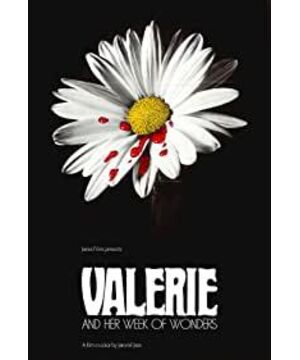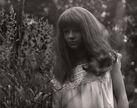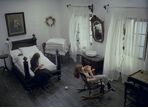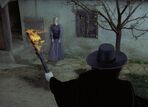The relationship between the heroine and other characters in the play is full of uncertainty. The weasel in Valerie's imagination is a vampire, it can be transformed into a human form, sometimes as her father, sometimes as a priest, sometimes as a police officer; the grandmother may be her cousin or mother; the bard Orlík may be hers Brother, maybe his lover... Valerie relied on her magic earrings to escape the threat of rape and death time and time again.
However, this surrealist work has a certain sense of resistance against the Czechoslovak background in the 1960s and 1970s. In accordance with the requirements of the Czech Communist Party for literary and artistic works, this film talks about feudal superstitions such as vampires, and also promotes religious meaning and sexual liberation messages, which are obviously in the category of "capitalist corruption." In addition, the director's attack on the double standards of authority and morality of the Holy See can also be interpreted as a questioning of the Communist Party's dictatorship at that time. Valerie and Orlík represent the free-spirited young generation, and the weasel and the "grandmother" symbolize the hypocritical and old evil forces. At the end of the film, the repressed cultural traditions are combined with the young rebellious forces.
PS: The meaning of divů in the original film title Valerie a týden divů is closer to Wonderland, so Wonders in the English translation name should be understood as "wonderland" or "fantasy world" instead of the so-called "miracle."
View more about Valerie and Her Week of Wonders reviews










